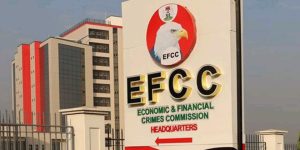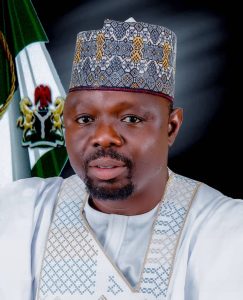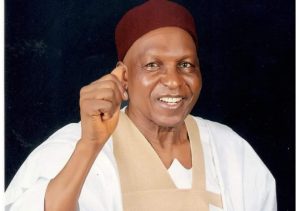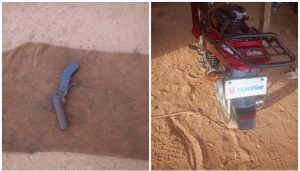2020 National Budget Review Should be Focused on SMEs Development, Job Creation – Akoh Jacobs

Budget is simply refer to as an estimate of income and expenditure for a set period of time while NATIONAL BUDGET is a financial statement containing the estimates of the planned revenue and expenditure of a given government for over a given period of time particularly a financial year. The content of a budget otherwise refers to as line items which is broadly divided into REVENUE, RECURRENT AND CAPITAL EXPENDITURE determines the classes of such budget which could be BALANCED BUDGET when the estimates planned revenue equates expenditure, SURPLUS when planned revenue exceeds expenditure and DEFICIT when planned estimates revenue is less planned estimates expenditure. Nigeria have not been privileged to have a balanced or surplus but deficit budget where recurrent expenditure always out weight capital expenditure which estimated revenue cannot sponsored.
Budget is very important and necessary in a given economy as it is primarily but practically guides and maintains control over the finance of government. It is a means of achieving statutory financial reporting objective of accountability in governance to the citizenry and concerned stakeholders of the social contract matrix.
The prevalent cloudy global economic reality posed by the COVID-19 pandemic and its resultant effect on Nigeria economy has necessitated review of 2020 budget.
BUDGET REVIEW refers to the modification of the budgetary items in parts or in whole of the original passed budget. It requires detailed analysis of line items (Cost and Income) to ascertain the real values comparing the line items with the original endorsed budget. Review is ideal to accommodates the changes in the economic environment. Step which Nigeria government have taken to prosecutes her 2020 National Budget.
A peep into Nigeria N10.33trillion 2020 initial Passed National Budget was to be mainly financed by VAT 7.5% and Daily oil quota of 2.1mpb @$57 Oil Revenue Benchmark which has plummeted due to volatility in global oil price accessioned by global pandemic from budget office show the following:
Oil Revenue – N2.64tr
Non oil revenue – N1.81tr
Other revenue sources – N3.97tr
Capital Expenditure – N2.47tr
Recurrent Expenditure – N4.49tr
Debt Servicing – N2.45tr
Statutory Transfer N560B
Sinking Fund – N273tr
Special Intervention fund – N350B.
All of the above items has been Utterly reviewed as the major budget determinant now shall be the daily oil quota of 1.94mpb @$25 and VAT 7.5%. Other sources of revenue which must be reactivated, automated and audit trained. Some of other sources of government revenue has been hampered by the prevalent unfavourable general business environment that crashed business outfits’ revenue, resulting to job losses with resultant effects of declines in government revenue Particularly tax revenue, royalty and rates. Government has however resulted to borrowing to finance the budget but caution is now required not to increase debt portfolio. There is need to pause aggressive borrowing as cost of fund the budget item known as debt servicing has it is own grave implication on the economy. The existing debt portfolio should be effectively managed and strictly to finance capital projects of economic value and never consumption of recurrent expenditure. While we continue to seeks debt reliefs from our creditors and in some cases, debt rescheduling where terms of some loans will be renegotiated. Also applying for grants when the need arise just like now.
However, focus now should be how to cut recurrent expenditure substantially to refinance SMEs Development, industrial development and job creation activities with specific interest on entrepreneurial training and skills acquisitions of the teeming youth population thereby developing the human capital and citizen’s capacity building needed for national productivity. Component governments must take this to heart as the nation need SMEs and industries more this time just humans needs blood in system to live. These acts goes a long way to revive the economy as SMEs remain the bedrock of economic prosperity of most Nations of the World.
Luckily, oil price is now above $25 benchmark selling at $36 currently. This avails us the opportunity to build up our reserve with speed and hence become a buffer for national economy recovery and growth plan. Let’s unlocked the self imposed lockdown now and accept the reality of learning how to live with the epidemic called COVID-19 to save more lives. Speedy economic recovery is possible. We just need to act rightly.
AKOH JACOBS (FCFIA)
Lokoja – Nigeria.








